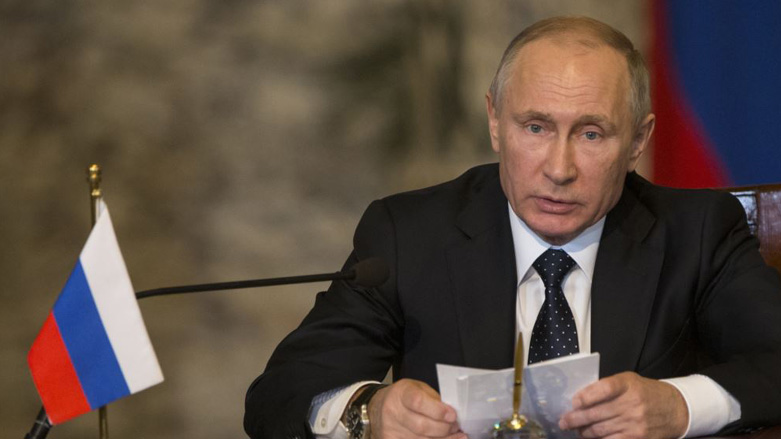Putin tours Syria, Egypt, and Turkey

WASHINGTON DC, United States (Kurdistan 24) – On Monday, Russian President Vladimir Putin undertook a whirlwind tour of three Middle Eastern states: Syria, Egypt, and Turkey.
Putin arrived first at the Khmeimim air base in Latakia, where he met Syrian President Bashar al-Assad. Last week, the Russian military declared that its objective of defeating the Islamic State (IS) in Syria had been “accomplished.”
In Syria, Putin announced he was ordering Russian troops back home, even as he also stated that Russia would maintain an air base and a naval base in the country.
It was unclear when the troops’ withdrawal would begin or how many troops would be involved. Nor did Putin say anything about the size of the Russian force that would remain at Moscow’s military bases in Syria.
Russia has made such announcements before, and US defense officials expressed skepticism about Putin’s statement. They even suggested it might be part of an effort to try to maneuver US forces into leaving Syria, as the war against IS winds down.
From Syria, Putin flew to Cairo to see Egyptian President Abdel Fatah al-Sissi. Two significant announcements followed.
Russia will soon renew direct flights to Egypt. They were suspended following the Oct. 31, 2015, bombing of a Russian passenger plane, a month after Russia’s intervention in Syria began.
Egypt relies heavily on revenues from tourism for foreign exchange, and Russians constitute the largest group of international visitors to Egypt—roughly 20% of the total.
The two leaders also signed an agreement to start the construction of Egypt’s first nuclear power plant. The facility will cost some $20 billion, and Moscow will loan Cairo 85% of the cost.
Last month, Moscow reached a preliminary agreement with Cairo to allow the Russian Air Force to transit through Egyptian airspace and use its military airfields.
“If finalized, the agreement would give Russia its deepest presence in Egypt since the early 1970s,” the New York Times reported, when Egyptian President Anwar al-Sadat expelled the Russians and then concluded a peace treaty with Israel—under US mediation—in the wake of its 1973 war with Israel.
No further word about that preliminary agreement emerged from Monday’s meeting. Egypt receives $1.3 billion annually in US aid.
From Cairo, Putin traveled to Ankara, where he saw Turkish President Recep Tayyip Erdogan.
In a joint press conference after their meeting, Erdogan highlighted the mutual opposition of the two leaders to Washington’s decision to transfer the US embassy in Israel from Tel Aviv to Jerusalem.
Turkey will host a summit of the 57-member Organization of Islamic Cooperation (OIC) on Wednesday to coordinate a response to that decision. Russia is an OIC observer country and will attend the meeting, Putin said.
Erdogan also noted that Turkey would soon finalize an agreement to purchase a Russian surface-to-air missile system, the S-400. The purchase is a matter of concern for NATO, of which Turkey is a member.
Finally, Syria figured very prominently on the agenda. Putin explained that the two leaders had discussed convening the Syrian National Dialogue Congress in early 2018—an issue that he also discussed with Assad.
Another round of the Astana talks on a Syrian settlement, sponsored by Russia, Turkey, and Iran, are to be held in Kazakstan on Dec 21-22.
Although Russia remains formally committed to the UN-sponsored Geneva talks on Syria, it remains unclear how Moscow’s own diplomacy relates to those negotiations. There is reason to suspect that Putin seeks to use the Astana talks to influence the Geneva talks or even supplant them.
On Monday, Robin Wright reported in The New Yorker magazine that the Trump administration has reluctantly decided to accept Assad’s rule in Syria until the country’s next scheduled elections in 2021.
“The US decision reflects the Administration’s limited options, the military reality on the ground, and the success of Syria’s Russian, Iranian, and Hezbollah allies in propping up the beleaguered Assad regime,” Wright wrote.
Editing by Nadia Riva
